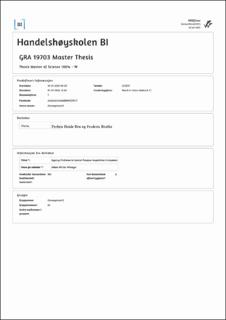Agency Problems In Special Purpose Acquisition Companies
Master thesis
Permanent lenke
https://hdl.handle.net/11250/3035809Utgivelsesdato
2022Metadata
Vis full innførselSamlinger
- Master of Science [1621]
Sammendrag
Special Purpose Acquisition Companies (SPACs) are publicly held
shell companies with no operations, formed with the sole purpose
of acquiring a single private company. With a sample of 342 SPAC
mergers between July 2016 and February 2022, we find that the
average 3-month buy-and-hold abnormal return (BHAR) is -16.7
percent, and only a quarter of SPAC’s produce positive returns. We
attribute these results to agency problems such as conflicting interests
between the participants and adverse selection problems for
the target shareholders. By analyzing SPAC data with the state-ofthe-
art tabular machine learning algorithm, XGBoost, we identify
previously undiscussed features that can help investors predict the
performance of SPACs and understand the conflicting interest. Our
results may indicate that outside investors are unaware of the true
determinants of SPAC performance. Furthermore, our evidence
suggests that the SPAC structure leads to optimistic valuations of
target companies and primarily benefits the parties that sell or redeem
their shares before the merger. We suggest new regulations
that align the interest of the parties involved in the SPAC transaction
with the publicly traded target firm.
Beskrivelse
Masteroppgave(MSc) in Master of Science in Finance - Handelshøyskolen BI, 2022
